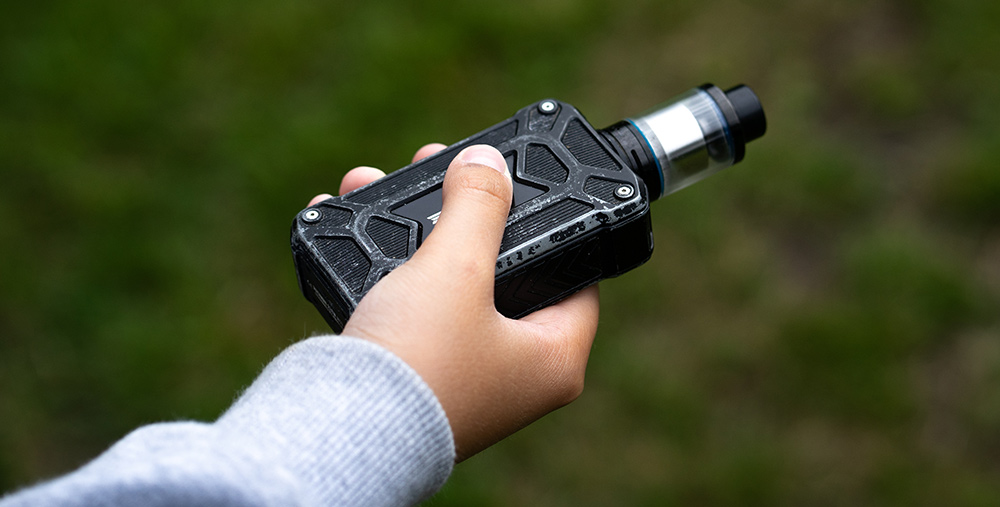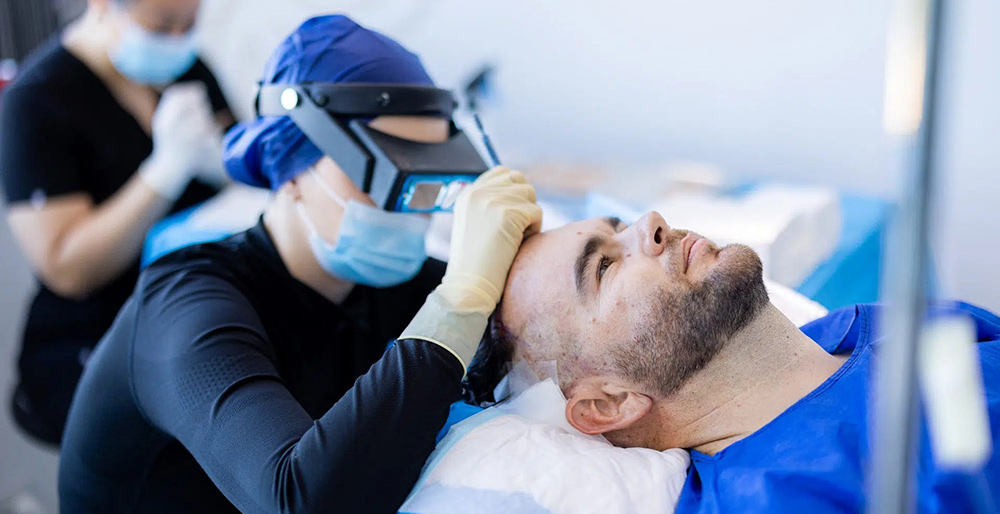Last updated on September 17, 2025
When people think about the effects of smoking, their minds often go to lung health or heart disease. But research suggests smoking may also affect your hair, leading to thinning, premature greying, and even long-term hair loss. If you’ve ever asked yourself, “Does smoking cause hair loss?” or wondered about vaping and nicotine’s impact on your scalp, you’re not alone.
At The Crown Clinic, we regularly see patients who are concerned about lifestyle-related hair loss, and smoking is a factor that often comes up in consultations. Understanding how smoking and vaping affects hair can help you make more informed decisions about your health and hair restoration journey.
Smoking and Hair Health: What the Research Says
So, does smoking cause hair loss? Evidence increasingly points to yes. Cigarette smoke is filled with thousands of chemicals that affect circulation, oxygen delivery, and the health of your skin and follicles. Over time, reduced blood flow to the scalp starves follicles of essential nutrients, making them weaker and more prone to shedding.
Researchers have also found that smoking elevates the levels of free radicals in the body. These unstable molecules contribute to oxidative stress, which accelerates cellular ageing, including in your hair follicles. As follicles age prematurely, hair becomes thinner, more brittle, and falls out sooner than it naturally would.
Although smoking isn’t always the single trigger for baldness, it can be a major contributing factor, especially in individuals already predisposed to male or female pattern hair loss. Think of it as stacking the odds against your hair: genetics may load the dice, but smoking tips the roll in favour of hair thinning.

Vaping still exposes your body to nicotine, which in turn, can affect hair loss.
What About Vaping and Nicotine?
With vaping on the rise, many ask: does vaping cause hair loss? The truth is, while marketed as a “cleaner” alternative to smoking, vaping still exposes your body to nicotine, a key culprit in hair health decline.
Nicotine is a vasoconstrictor, meaning it narrows blood vessels and restricts blood flow. This reduces the oxygen and nutrients that reach your follicles, both of which are critical for growth and strength. Without adequate nourishment, hair growth slows, strands become weaker, and shedding accelerates.
Although research on vaping and hair loss is newer and less extensive than smoking studies, the evidence points in a similar direction. Nicotine and other chemicals in e-liquids could contribute to the same problems: follicle damage, reduced circulation, and oxidative stress. For people already experiencing thinning, vaping may worsen the issue rather than provide relief.
The Link Between Smoking and Hair Loss: Myth or Reality?
Some dismiss the connection between smoking and hair loss as a myth, but scientific research tells a different story. Multiple studies have shown that smokers are significantly more likely to experience receding hairlines, diffuse thinning, and premature greying compared to non-smokers.
The mechanisms are complex. Chemicals in cigarettes damage blood vessels and shrink the supply of oxygen and nutrients to the scalp. This disrupts the natural hair cycle, pushing follicles prematurely into the shedding phase. On top of this, oxidative stress caused by free radicals breaks down hair follicle cells, while the toxins in smoke accelerate the natural ageing process.
The outcome? Weaker, duller, and more brittle strands, combined with faster hair follicle miniaturisation. Even if smoking alone doesn’t guarantee baldness, it acts as a powerful accelerator when paired with hereditary factors. Simply put, the evidence confirms smoking is not just bad for your lungs and heart, it’s also bad news for your hair.
Can Quitting Reverse the Damage?
So, will your hair grow back if you quit smoking? In some cases, yes. Once you stop, your body begins repairing itself almost immediately. Improved blood circulation means more oxygen and nutrients can reach the scalp, which may help hair follicles regain some strength and function. Some people notice reduced shedding, better hair quality, and a healthier scalp within months of quitting.
However, it’s important to set realistic expectations. If hair follicles have been permanently damaged, or if you are already predisposed to male or female pattern baldness, regrowth may be limited.

There are both surgical and non-surgical treatment options available for thinning hair.
Treatments for Thinning Hair at Crown Clinic
If you’ve noticed thinning hair or hair loss, stopping smoking is one positive step, but you may also benefit from treatments that actively restore or encourage new growth. At Crown Clinic, we offer a range of options tailored to your needs:
FUE (Follicular Unit Extraction) Hair Transplants – A modern, minimally invasive procedure where healthy follicles are relocated from the donor area to thinning regions.
Sapphire Hair Transplant – A refinement of FUE using ultra-fine sapphire blades, which may allow for higher precision and faster healing.
CPI (Crown Precision Implantation) – Hair follicles are directly implanted into the thinning or bald areas using a specialised tool called the Choi implanter pen.
Non-Surgical Hair Loss Treatments – For those not ready for surgery, we also provide treatment options that support scalp health and stimulate hair growth.
Each treatment plan is personalised, based on your medical history, hair goals, and lifestyle.
Book a Free Hair Consultation
Worried about hair loss or noticing changes in your hair that concern you?
At Crown Clinic, we bring over 50 years of experience in hair restoration and offer a truly personalised approach to treatment. Whether you’re exploring FUE hair transplantation or non-surgical options, our expert team will take the time to understand your medical history, hair loss concerns, and goals so we can recommend a solution that works for you.
Call us on +61 2 9134 4788 or book a free consultation here.
FAQs
Will my hair grow back if I quit smoking?
Quitting smoking can improve circulation and overall health, which may help slow further hair thinning. However, once follicles are significantly damaged, they may not regrow without treatment. That’s where options like hair transplantation can make a difference.
Does smoking cause hair thinning?
Yes, smoking can contribute to thinning by reducing blood flow and oxygen supply to follicles, making them weaker over time.
Does vaping cause hair loss?
Vaping delivers nicotine, which may restrict blood flow to the scalp. While more research is needed, it may contribute to thinning in a similar way to smoking.
Does nicotine cause hair loss?
Nicotine may contribute to hair thinning by constricting blood vessels, reducing oxygen supply to hair follicles, and interfering with the natural growth cycle.
How can I regrow hair after vaping or smoking?
Regrowth depends on factors like the extent of hair loss and your overall health. Quitting smoking or vaping can improve scalp circulation and slow further loss. For more advanced cases, treatments such as a hair transplant or a tailored plan from Crown Clinic can help restore thickness and coverage.